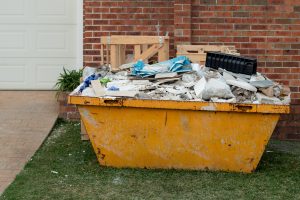
How To Dispose Of Glass
Struggling with glass waste? Our comprehensive guide covers everything you need to know about disposing of glass safely and responsibly.
Read More
The Differences Between Commercial & Residential Skip Bin Hire
Not sure whether to choose a residential or commercial skip bin for your project? Our comprehensive guide breaks down the key differences and offers practical tips to help you choose the perfect skip bin for your needs.
Read More
Business Waste & How A Skip Can Help
Managing business waste doesn’t have to be complicated. Skip bins offer a cost-effective, environmentally friendly, and convenient solution for businesses of all sizes. Learn how Cheapa Skips can help you streamline your waste disposal process and keep your workspace clean and safe.
Read More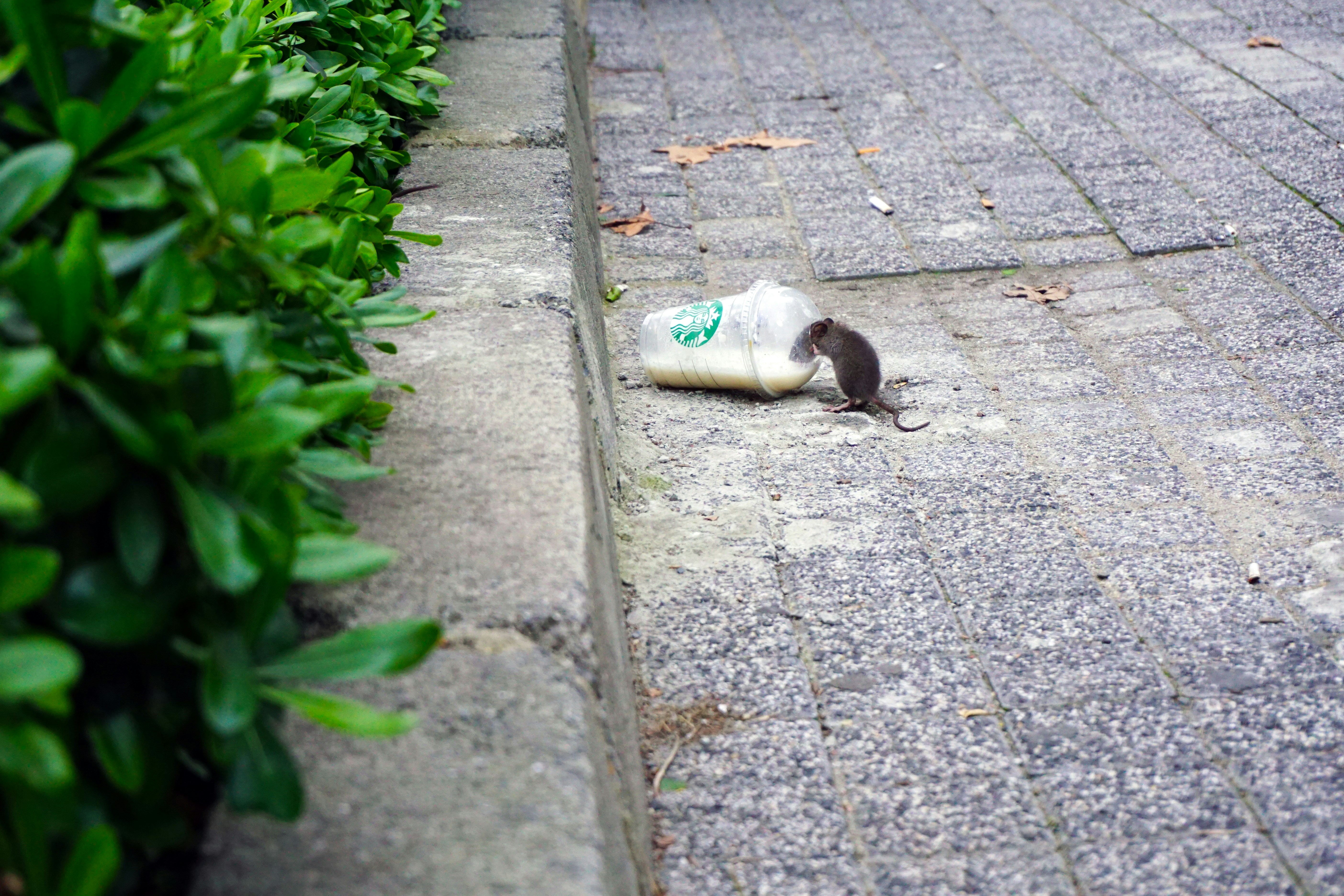
Effective Strategies to Keep Skip Bins Pest-Free
Say goodbye to unwanted pests in your skip bins! Our latest blog post unveils practical and efficient strategies to keep your skip bins clean and pest-free.
Read More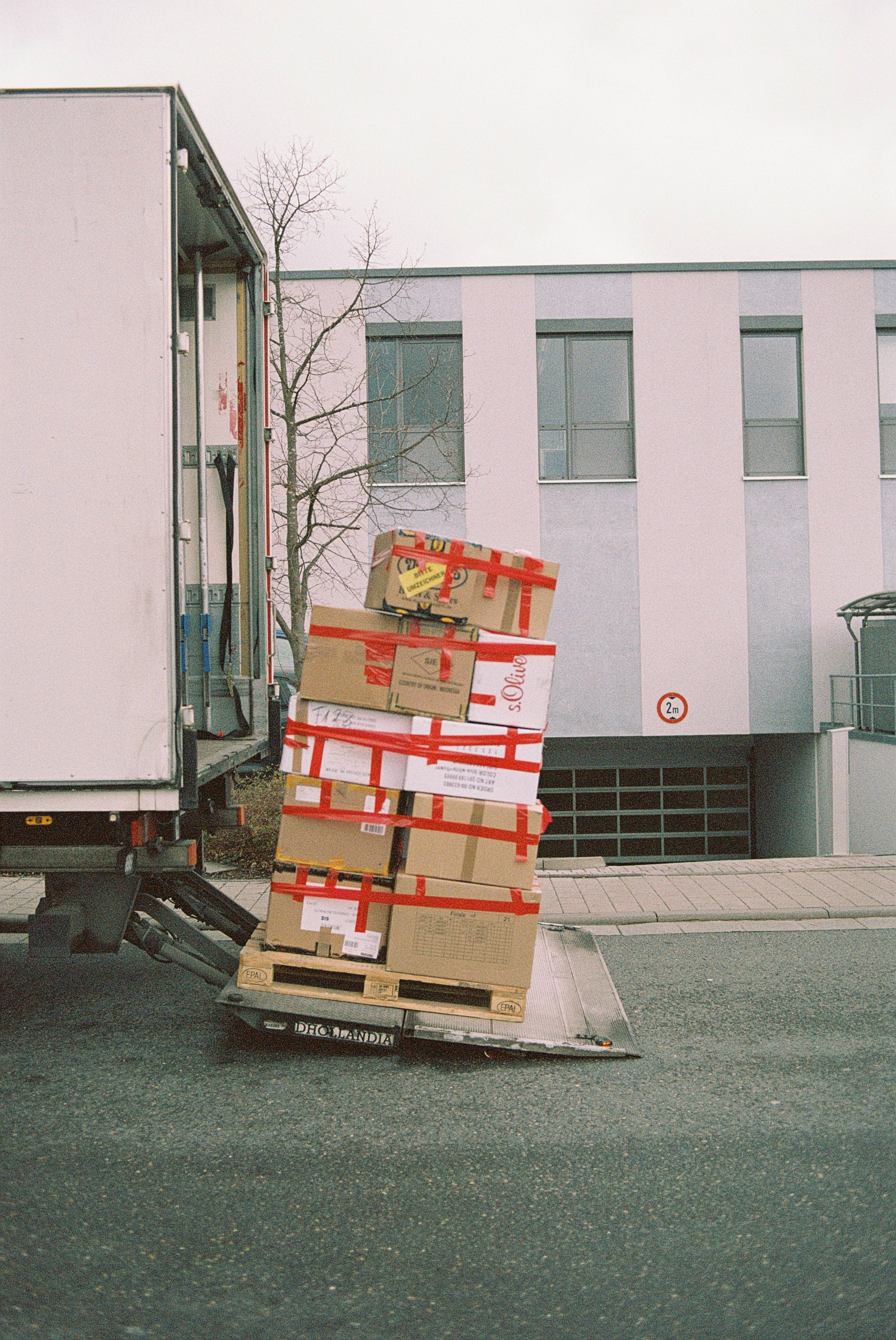
Maximise Efficiency & Minimise Stress: How Skip Bin Hire Can Simplify Your Moving Experience
Are you gearing up for a move? Dive into our latest blog to explore the world of skip bin hire and how it can simplify your moving experience. From tackling common types of waste to mastering efficient packing, we’ve got you covered!
Read More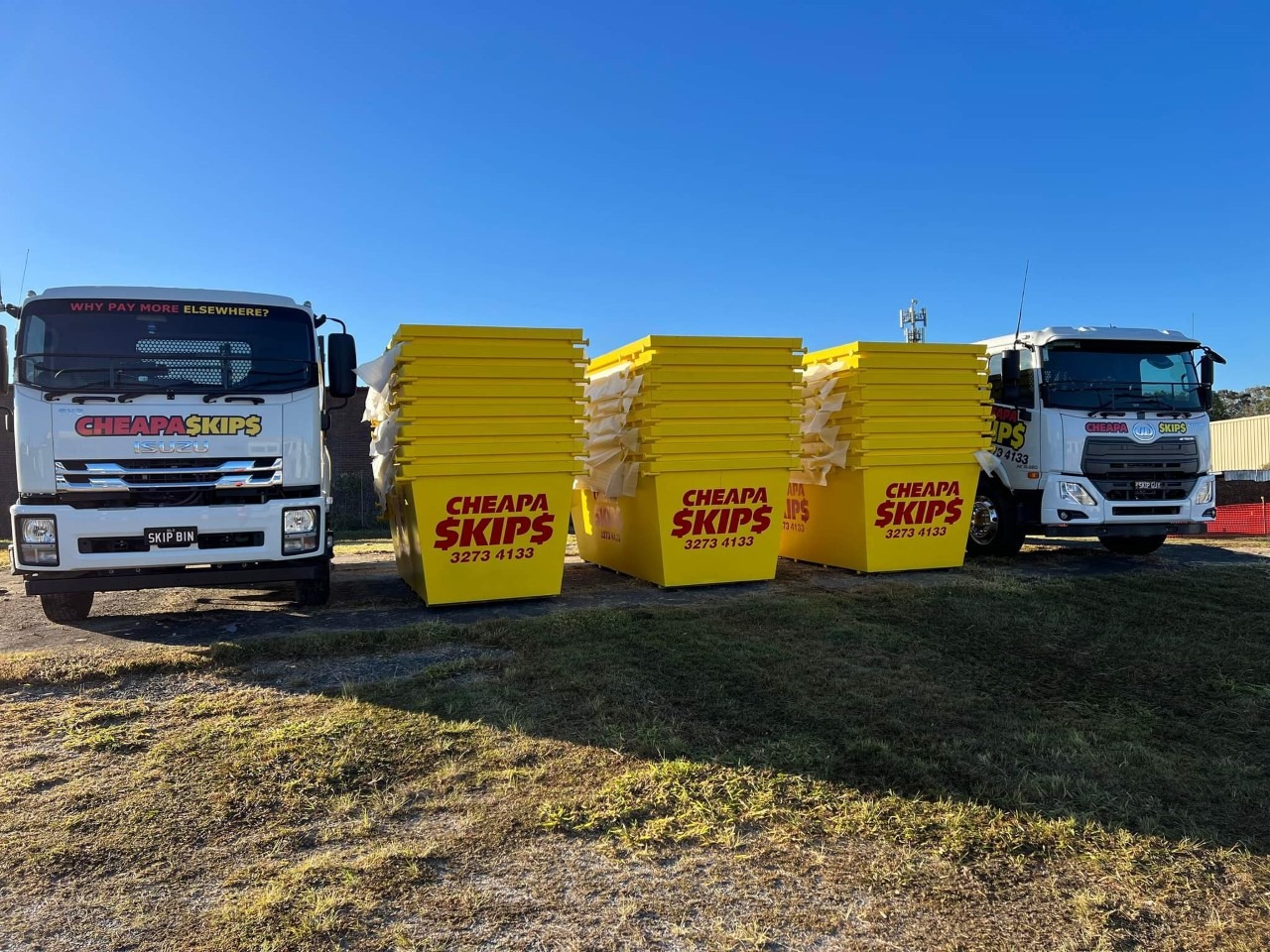
Making the Right Waste Disposal Choice: Skip Bins Vs Skip Bags
Learn how to make informed choices for your waste removal needs in our latest blog post. We explore the pros and cons of skip bins and skip bags, ensuring you can manage your waste efficiently, cost-effectively, and with a positive impact on the environment.
Read More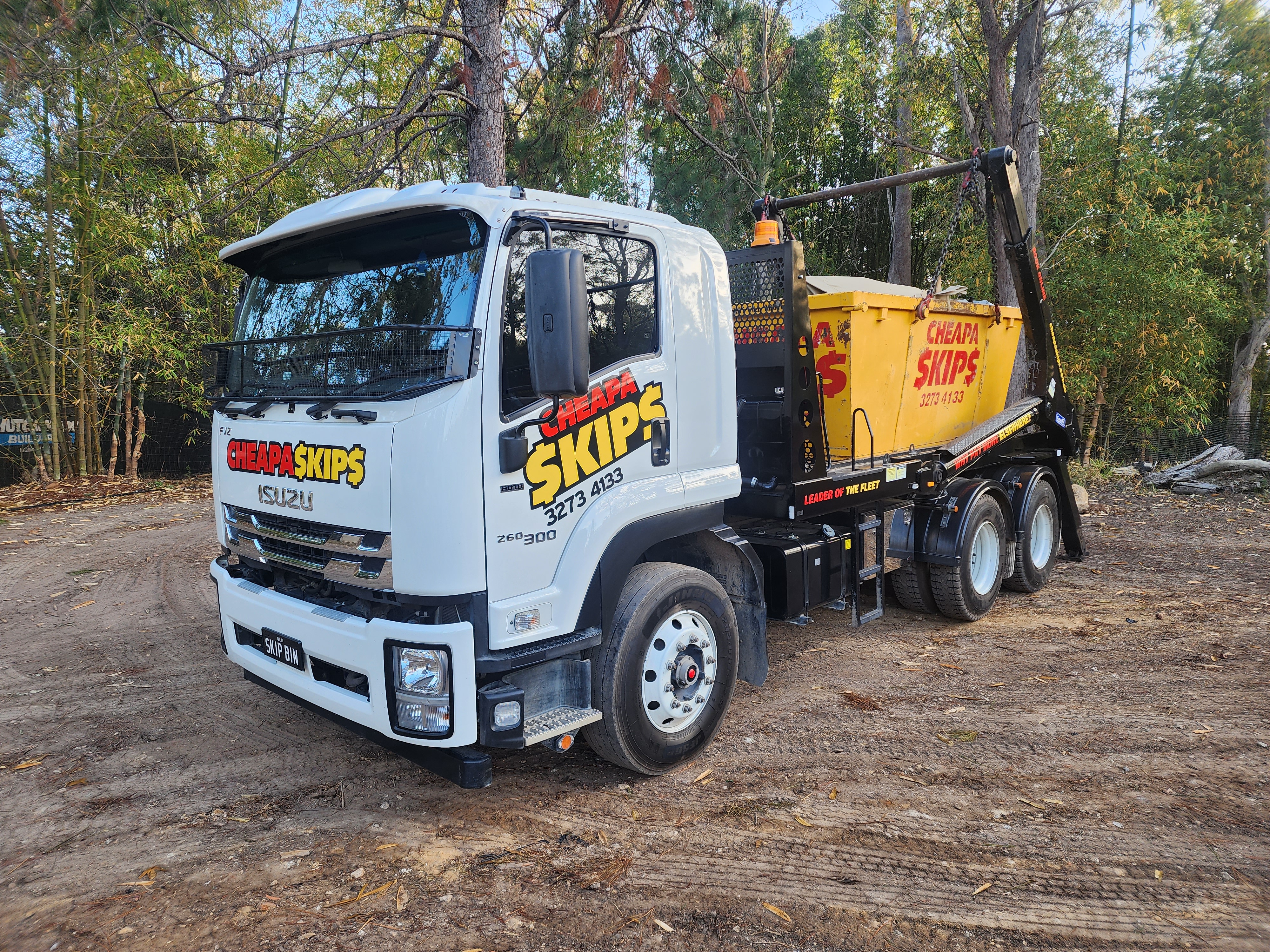
A Guide For Choosing the Right Skip Bin Provider
In the world of waste management, choosing the right skip bin provider can make a world of difference. From managing household clutter to handling construction debris, our comprehensive guide walks you through the crucial steps and considerations to ensure you pick the perfect skip bin provider for your unique requirements. Read on to make your waste disposal hassle-free and eco-friendly.
Read More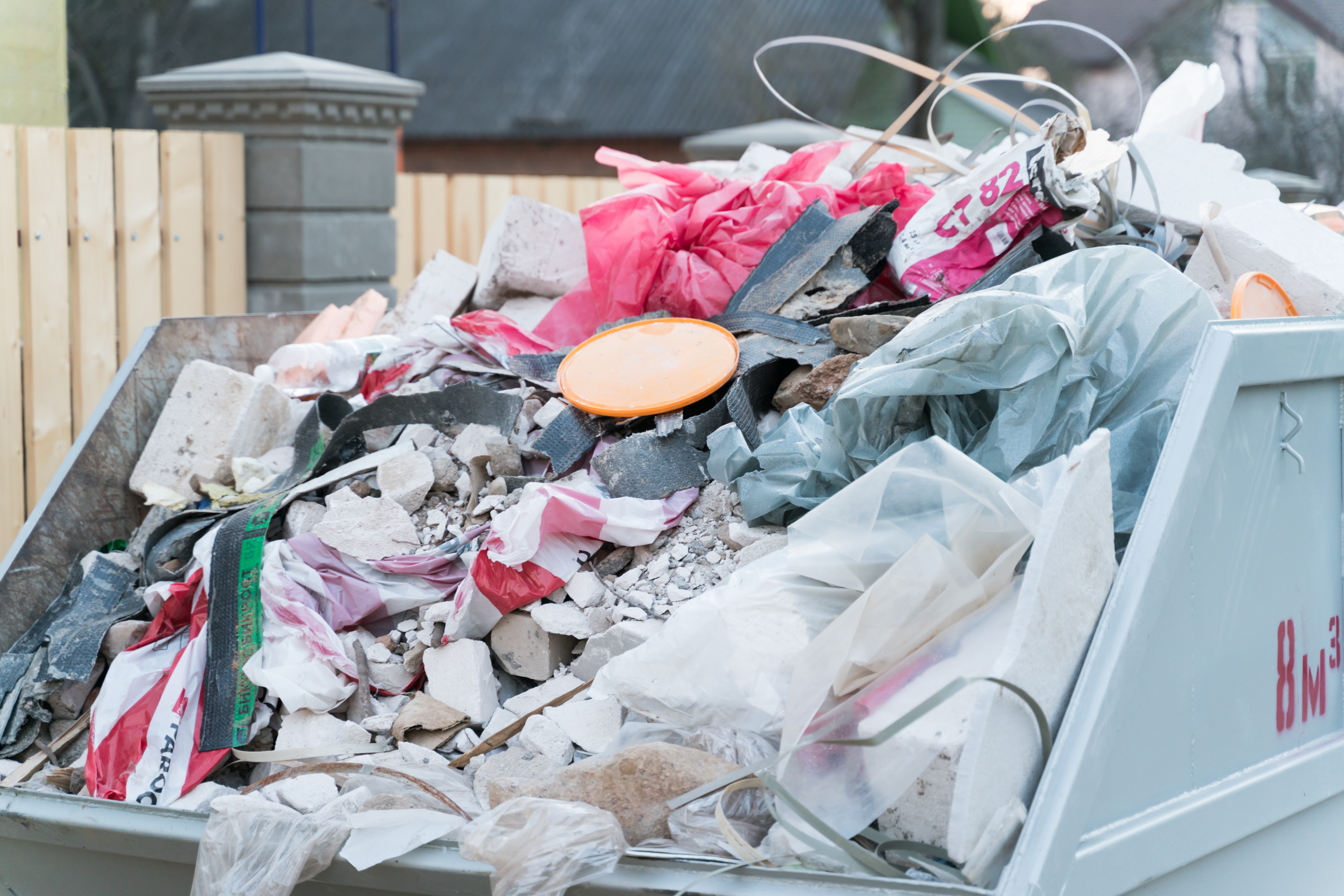
The Dangers Of Do-It-Yourself Rubbish Removal
Are you considering tackling rubbish removal on your own? Think again! DIY rubbish removal can be risky, time-consuming, and costly. In our latest blog post, we explore the dangers of handling waste independently and present a better solution: professional skip bin hire services.
Read More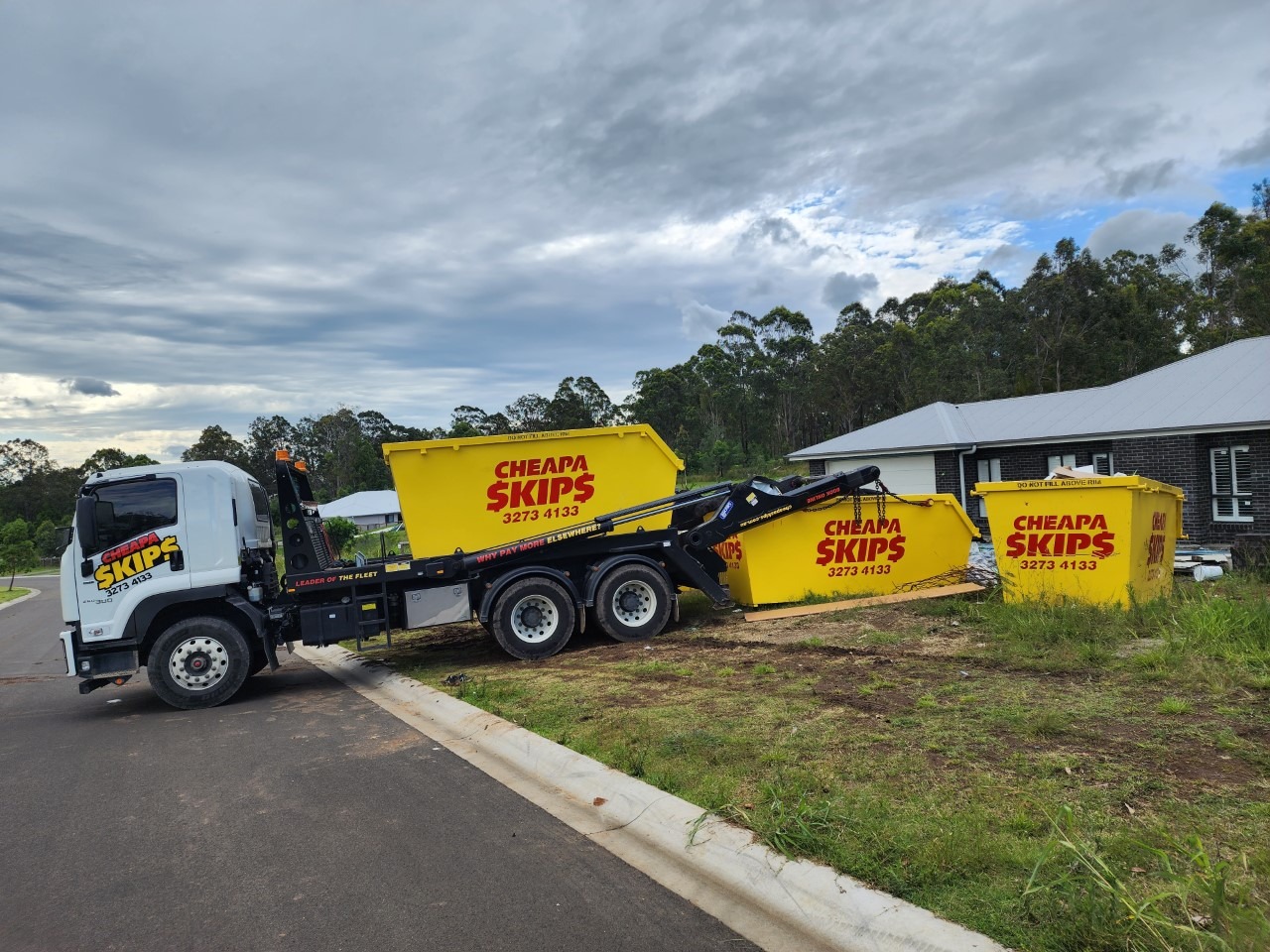
Maximising Your Skip Bin Rental: Tips For Efficient Placement
Learn how to get the most out of your skip bin rental by optimizing its placement with our expert tips. From choosing the right location to avoiding common mistakes when placing your skip our blog will help you save time and money on your next clean up project. Read now!
Read More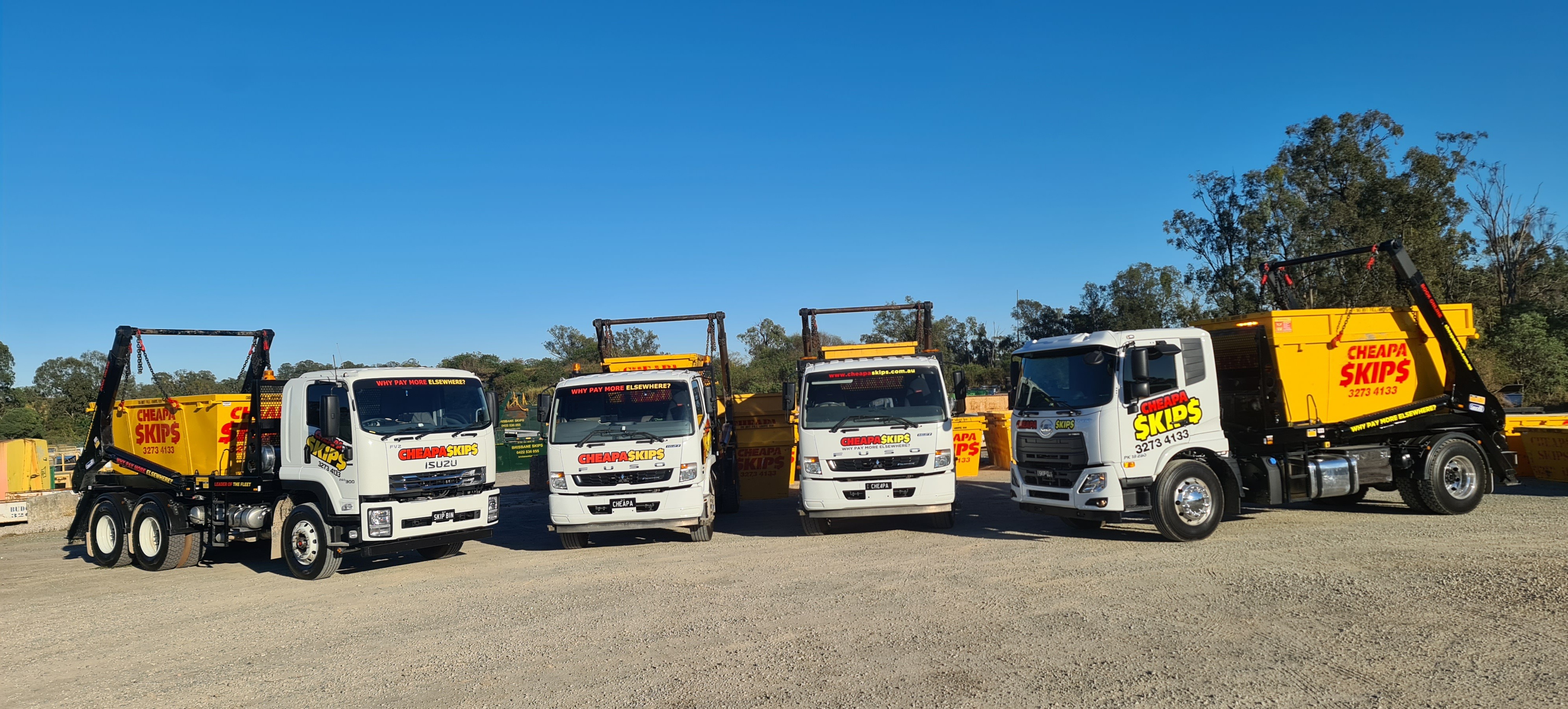
Understanding the Different Types of Waste that Can be Disposed of in a Skip Bin
Waste management has become an increasingly important aspect of our lives, especially with the growing amount of waste we generate on a daily basis. If left to its own devices the rubbish we create can quickly get out of hand.
While we all have household bins that we use on a day-to-day basis, this is often not enough, especially during big clean-ups or construction projects. That’s why hiring a skip bin is an effective and efficient way to dispose of waste. However, it is important to know what type of waste is acceptable to put in a skip bin.
This will ensure that you’re not only keeping the environment clean and safe, but also complying with the rules set by your local provider. In this article, we will cover the different types of waste that can be disposed of in a skip bin, as well as the waste that cannot be disposed of.
Importance Of Proper Waste Disposal
Proper waste disposal plays a critical role in preserving the health and safety of both the environment and those who visit it. Improper waste disposal practices can lead to a range of negative consequences, including environmental pollution. Here, harmful substances and chemicals can seep into soil and water systems, contaminating these essential resources.
This waste not only harms the environment, but it also presents a significant safety hazard. Neglecting proper disposal techniques can create blockages and obstructions, making it tough to get around. Similarly, sharp pieces of metal, glass, or other materials can easily cause injury and harm.
Improper waste disposal also detracts from the beauty of our communities. Not only can litter piles and cluttered areas be an eyesore, but they can also impact property values and give off a sense of neglect!
This is why it is essential for both residential and commercial properties to prioritise proper waste disposal methods. Hiring a professional skip bin provider like Cheapa Skips makes waste management a breeze, leaving you with clean and tidy surroundings.
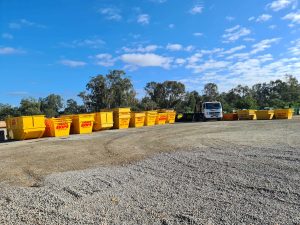
Types Of Waste
Many of us consider rubbish to be just that – rubbish! However, different types of waste have unique characteristics that require specific disposal methods.
To better understand how waste should be disposed of, it is helpful to break it down into three distinct categories. In doing so, we can ensure that our waste is disposed of in a responsible and safe manner.
The three main categories we see most often include:
- Household Waste
- Construction Waste
- Green Waste
Household Waste
This type of waste includes the day-to-day items we use in our homes, such as furniture, appliances, clothing, and electronics. This type of waste is typically generated by residential properties and is a mixture of both organic and inorganic materials.
- Furniture – old or unwanted couches, chairs, tables, and other furniture items
- Electronics and Appliances – televisions, fridges, washing machines, and other electronic items
- Clothing and Bedding – old or unwanted clothes, towels, linens, and other textiles
- Paper and Cardboard – old magazines, newspapers, cardboard boxes, and other paper products
- Glass and Plastic – containers, bottles, and other packaging materials
Proper disposal of household waste is important to maintain a clean and safe environment. With the assistance of skip bins, household waste can be efficiently collected, transported, and disposed of in an environmentally responsible manner.
Construction And Demolition Waste
This type of waste includes the materials generated from construction, renovation, and demolition projects.
- Wood and Timber – scrap lumber, pallets, and other wooden materials
- Bricks – broken or excess bricks from construction projects
- Concrete – old or excess concrete from demolition or construction projects
- Roofing – old or excess roof tiles and shingles from demolition or construction projects
- Tiles – ceramic tiles from flooring or countertops
- Ceramics – broken or excess ceramic items such as toilets, bathtubs and sinks
- Glass – broken or excess glass from construction projects
- Plastic – packaging materials or excess plastic from construction projects
- Metals – Aluminium, Copper, Iron, and Steel
- Drywall – excess or broken drywall from construction projects
Proper disposal of construction and demolition waste is crucial to ensure efficiency and productivity on work sites as well as avoid environmental contamination. Skip bins are an effective solution for disposing of this type of waste, as they can handle large quantities of heavy materials and ensure their proper disposal.
Garden Waste
This type of waste includes organic materials generated from landscaping and gardening activities. Garden waste is typically generated by residential commercial and residential properties with large garden spaces.
- Grass clippings – excess grass from lawn mowing or trimming
- Leaves – fallen leaves from trees and bushes
- Tree trunks – cut or fallen tree trunks
- Branches and Twigs – excess branches and twigs from pruning or trimming
- Shrubs – excess shrubs or plants from landscaping
- Soil and Dirt – excess soil or dirt from digging or landscaping
Before we realise it, green waste can quickly accumulate and overwhelm us. Using a skip bin throughout your gardening or landscape project can ensure the space stays clean and tidy.
Waste That Cannot be Disposed Of In A Skip Bin
Proper waste disposal is crucial for the environment and our health, but not all types of waste can be placed in skip bins. It is important to know what types of waste are prohibited to ensure they are safely and carefully disposed of. Restricted items include:
- Chemicals and toxic substances: Chemicals and toxic substances such as batteries, pesticides, and cleaning agents cannot be disposed of in skip bins.
- Flammables such as Gas Bottles or Petrol Cans: Flammable items, such as gas bottles or petrol cans, can pose a fire hazard and should never be disposed of in skip bins.
- Asbestos: Asbestos is a hazardous material that can cause serious health problems if inhaled. Asbestos should never be disposed of in skip bins and must be handled and disposed of by a licensed asbestos removalist.
- Tyres: Tyres are not only bulky and difficult to manage, but they also take a long time to decompose. Tyres should not be disposed of in skip bins and should be taken to a tire recycling facility for proper disposal.
- Paint Tins: Paint tins and other containers holding hazardous materials such as solvents and thinners should not be disposed of in skip bins.
- Oily & Greasy Motor Parts: Used oil and greasy motor parts should not be disposed of in skip bins as they can contaminate soil and water.
In addition to these commonly restricted items, it is also important to check with your skip provider for any specific items that they may restrict. This ensures that you do not incur any penalties by your bin provider.
Key Takeaways
As waste continues to grow, proper rubbish disposal has never been more crucial. The benefits of proper waste disposal are numerous, ranging from preserving the environment to protecting human health. Hiring a skip is a convenient and effective way to dispose of built-up rubbish, as it provides a safe and secure way to collect and transport waste to the appropriate disposal facilities.
However, not all types of waste can be disposed of in a skip bin, and it is important to know what types of waste are prohibited to ensure they are safely and carefully disposed of. Restricted items include chemicals and toxic substances, flammables, asbestos, and tyres, among others.
At Cheapa Skips, we offer reliable and efficient skip bin services to help you manage your waste in a safe and responsible manner. Contact us today to learn more about our services and to book a skip for your next waste management project!
Read More
